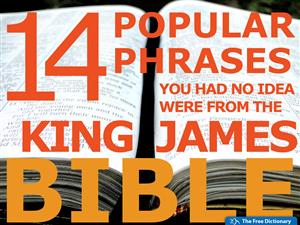Compound Nouns
What is a compound noun?
A compound noun is a noun consisting of two or more words working together as a single unit to name a person, place, or thing. Compound nouns are usually made up of two nouns or an adjective and a noun, but other combinations are also possible, as well.
Generally, the first word in the compound noun tells us what kind of person or thing it is or what purpose he, she, or it serves, while the second word defines the person or object, telling us who or what it is. For example:
- water + bottle = water bottle (a bottle used for water)
- dining + room = dining room (a room used for dining)
- back + pack = backpack (a pack you wear on your back)
- police + man = policeman (a police officer who is a man)
Like other nouns, compound nouns can be modified by other adjectives. For example:
- “I need to buy a large water bottle.”
- “That’s a beautiful dining room.”
- “My old backpack is still my favorite.”
- “A lone policeman foiled the attempted robbery.”
You can recognize compound nouns because the meaning of the two words put together is different than the meaning of the words separately. For example, water and bottle have their own separate meanings, but when we use them together they mean a particular type of bottle that we drink water from.
Forming compound nouns
As mentioned, compound nouns are formed by combining two or more words, with the most common combinations being noun + noun or adjective + noun. However, combinations using other parts of speech are also possible. Below are the various combinations used to create compound nouns.
Noun + noun
There are a great number of compound nouns formed using the noun + noun combination. For example:
- backpack
- bathroom
- bathtub
- bedroom
- bus stop
- fish tank
- football
- handbag
- motorcycle
- shopkeeper
- tablecloth
- toothpaste
- wallpaper
- water bottle
- website
- wristwatch
Adjective + noun
There are also many compound nouns that are formed using the adjective + noun combination. For example:
- full moon
- blackberry
- blackbird
- blackboard
- cell(ular) phone
- mobile phone
- hardware
- highway
- greenhouse
- redhead
- six-pack
- small talk
- software
- whiteboard
Other combinations
Although the noun + noun and adjective + noun combinations are the most common, there are also plenty of other possibilities for forming compound nouns. For example:
Combination | Examples |
|---|---|
noun + verb | haircut, rainfall, sunrise, sunset |
noun + preposition | hanger-on, passerby |
noun + prepositional phrase | brother-in-law, mother-in-law |
noun + adjective | cupful, spoonful |
verb + noun | breakfast, washing machine, runway, pickpocket, swimming pool |
preposition + noun | bystander, influx, onlooker, underpants, upstairs |
verb + preposition | check-in, checkout/check-out, drawback, lookout, makeup |
adjective + verb | dry cleaning, public speaking |
preposition + verb | input, output, overthrow, upturn |
Writing compound nouns
Compound nouns are very common, both in written and spoken English, and there are spelling, punctuation, and pronunciation norms that we must be aware of if we want to use them correctly.
The three written forms of compound nouns
Writing compound nouns is a bit complicated due to the fact that they can take three different forms.
First, open compound nouns (or spaced compound nouns) are those that are written as two separate words, such as washing machine, swimming pool, and water bottle.
Second, there are hyphenated compound nouns, as in check-in, hanger-on, and mother-in-law.
Third, there are closed compound nouns (or solid compound nouns)—those that are written as one word, such as rainfall, drawback, and toothpaste.
Unfortunately, there aren’t any rules that tell us which of the three forms is acceptable for a particular compound noun. Some compound nouns are commonly written in two forms, as in website / web site or checkout / check-out, while others, such as bus stop, are strictly used in one form. Where more than one is possible, the form that is more commonly used may depend on the variety of English (American English vs. British English, for example), the style guide of a publication, or the personal preference of the writer.
If you’re not sure which of the three forms to use, it’s important to check a good, up-to-date dictionary. If you are relying on the spellchecker in a word processor, remember that this has its limits. For example, spellcheck is good for checking whether a particular compound noun can be written as one word (closed); however, if we write a compound noun as two words (open) and it should be written as one word (closed), or if we write it with a hyphen and it should be written without a hyphen, spellcheck will not catch the mistakes.
Finally, remember that, no matter which way the compound noun is written, it always functions grammatically as a single unit.
Pluralizing compound nouns
We usually pluralize a compound noun by adding an “-s” or “-es” to the main word, or the defining word, of the compound noun. This is usually the second word, but not always. For example:
Singular | Plural |
|---|---|
bedroom | bedrooms |
football | footballs |
water bottle | water bottles |
full moon | full moons |
BUT
Singular | Plural |
|---|---|
secretary general | secretaries general |
mother-in-law | mothers-in-law |
passerby / passer-by | passersby / passers-by |
When it’s not obvious which of the words is the defining word, we pluralize the end of it. For example:
Singular | Plural |
|---|---|
haircut | haircuts |
check-in | check-ins |
checkout / check-out | checkouts / check-outs |
upturn | upturns |
Pronouncing compound nouns
In general, compound nouns are pronounced with the emphasis on the first part of the word. For example:
- BEDroom
- BLACKbird
- CHECK-in
- GREENhouse
- MAKEup
- WATER bottle
Pronouncing compound nouns in this way helps us distinguish words that form a compound noun like blackbird and greenhouse from other instances when the same words would appear together, as in: “Look at that beautiful black bird,” or “I like that green house on the corner.”
Although we normally stress the first word in a compound noun, there are certain exceptions to this pattern. For example, we disregard this rule when pronouncing compound nouns that include titles or proper nouns, as in Secretary GENeral and Mount RUSHmore.
If in doubt, you can use a good dictionary to determine which syllable should be emphasized.
Get all volumes of The Farlex Grammar Book in paperback or eBook.

